The unhealthiest eating habits revealed
How to avoid common mealtime mistakes
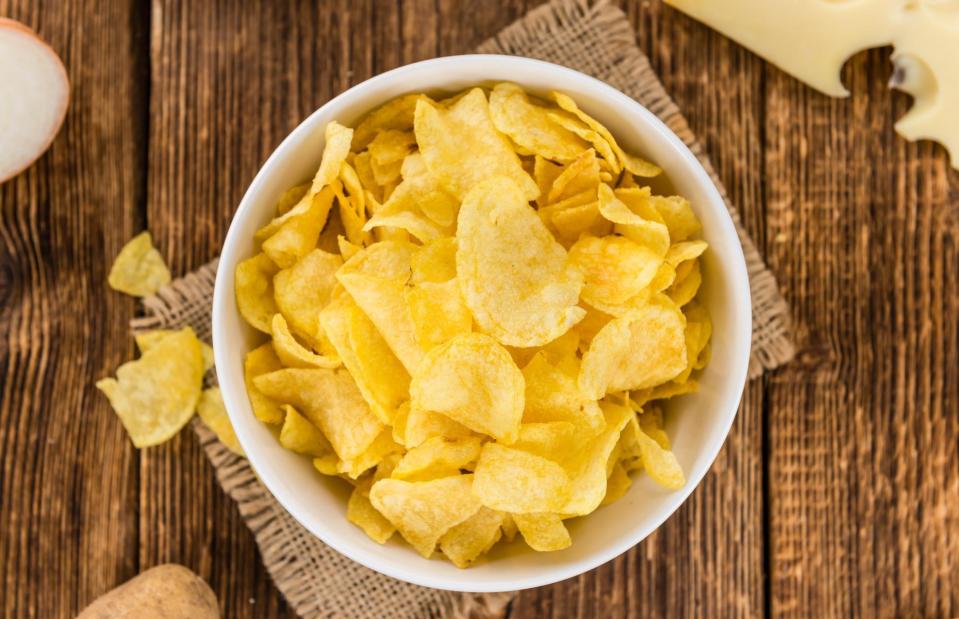
Handmade Pictures/Shutterstock
When we're doing the same little things every single day, we don't always realise we've slipped into bad habits. Eating the right things, at the right times and in the right way can be particularly tricky. From eating too fast to chewing too loudly and filling our cups straight from a cafetière, it's easier to slip up than you might think.
We look at the habits you need to break, along with some handy hacks to make mealtimes healthier and more pleasant (for everyone).
Skipping breakfast
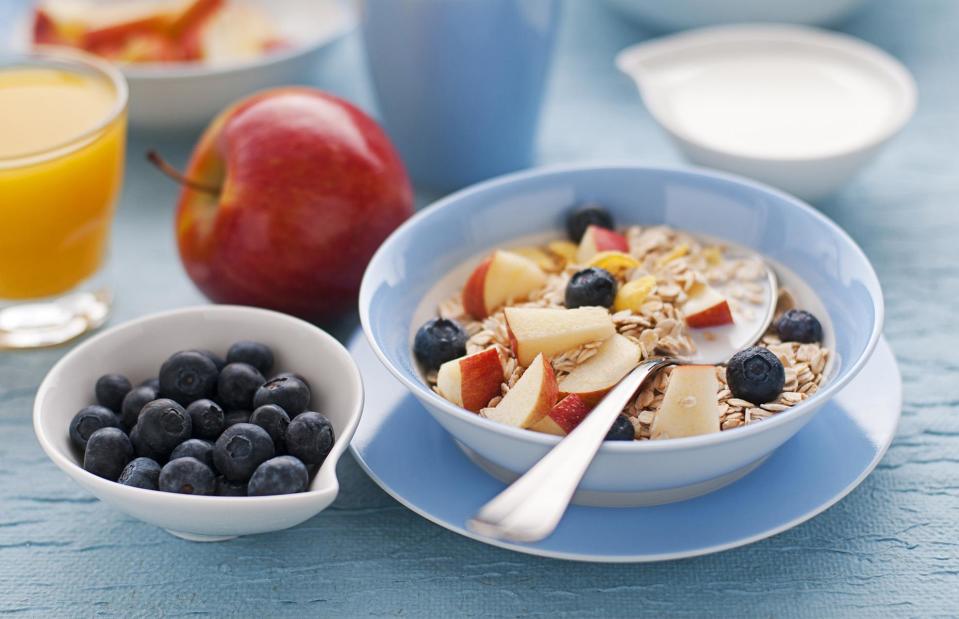
DUSAN ZIDAR/Shutterstock
We get it; mornings can be hectically busy. But if there's no place in your pre-work schedule for a nutritious breakfast, you're really missing a trick. Eating breakfast gives you a boost of energy to help you take on the day – and if you skip it, you're more likely to overeat later on. If you're really pressed for time, make sure you stock up on yogurt and fruits, which you easily can take with you, or try making yourself a healthy smoothie.
Chewing noisily
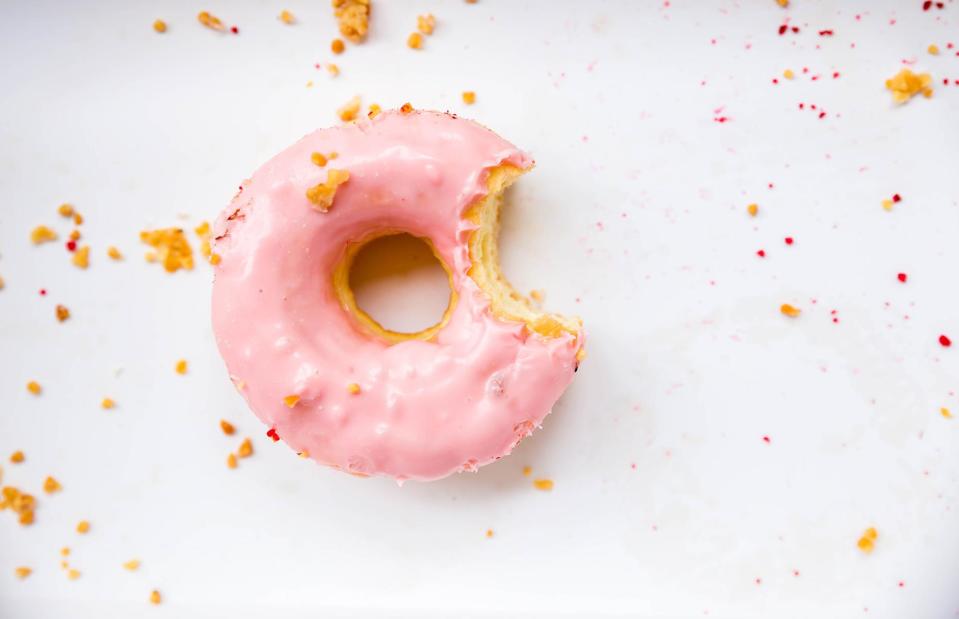
Sirikunkrittaphuk/Shutterstock
Ask around and you'll find that loud munching is one of the most reviled eating habits of all. For people with a condition called misophonia – a phobia of repetitive noises – it can be anxiety-inducing, producing a reaction akin to the 'fight or flight' response. So be polite, close your mouth and try to eat as quietly as you can.
Restricting yourself too much
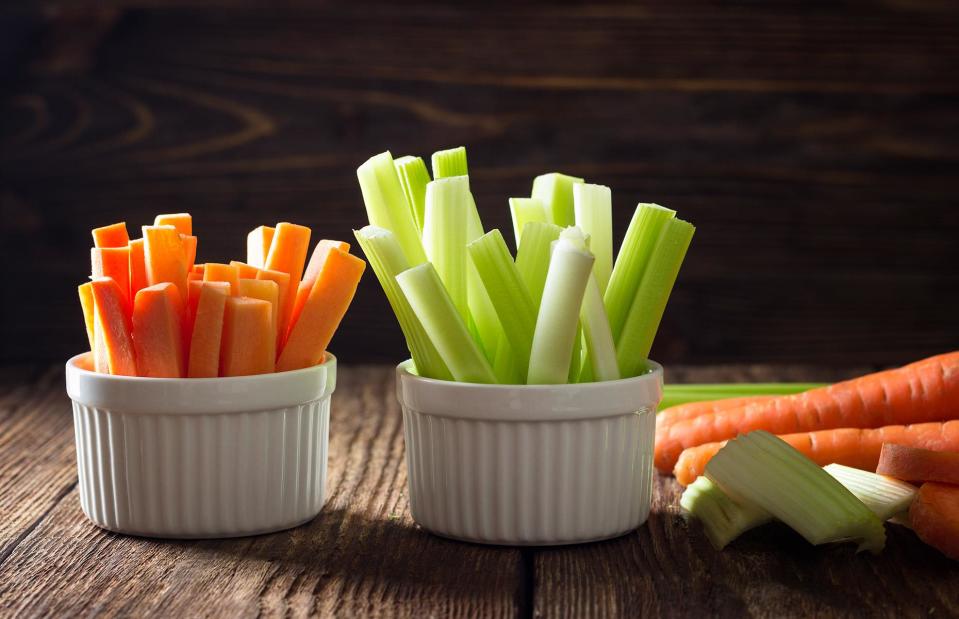
Dmitrii Ivanov/Shutterstock
Maintaining a healthy, balanced diet is important – but try not to restrict yourself too much. If you feel like you can't indulge in the occasional treat, it can leave you with cravings that are nigh-on impossible to ignore, meaning you're more likely to binge. So feel free to give yourself a treat from time to time, and remember the mantra: 'everything in moderation'.
Eating on the move
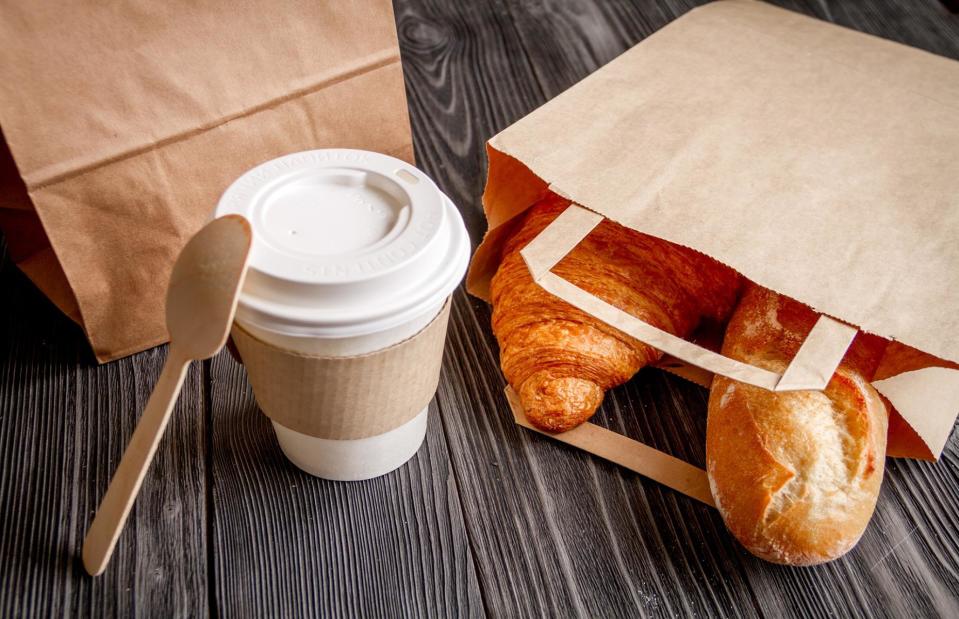
279photo Studio/Shutterstock
Studies published in The American Journal of Clinical Nutrition have indicated that if you're distracted while you are eating – whether that's because you're walking, working or watching TV – you'll tend to eat more at the time, and later too. As hard as it is, eating mindfully, by sitting down and concentrating on the meal in front of you, is likely to be better for your waistline and overall health.
Always ordering the combo meal
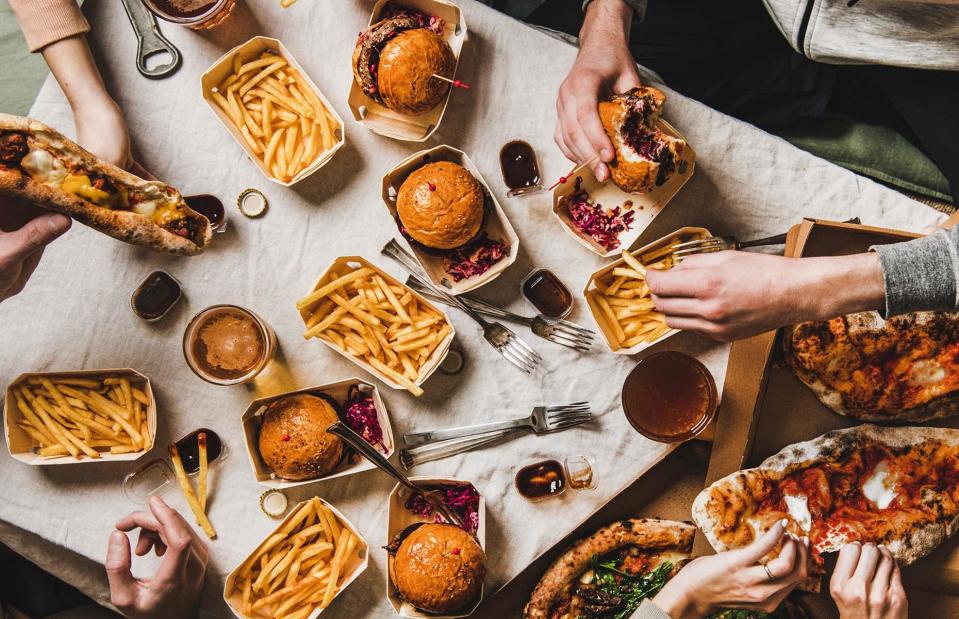
Foxys Forest Manufacture/Shutterstock
They may offer better value for money, but when you're eating on the go, do your best to resist the call of the combo or value meal. When you opt for food that's bundled together – a burger and fries, for example – you're likely to order more food than you actually need. Instead, order your items separately (and save a few pennies at the same time).
Emotional eating
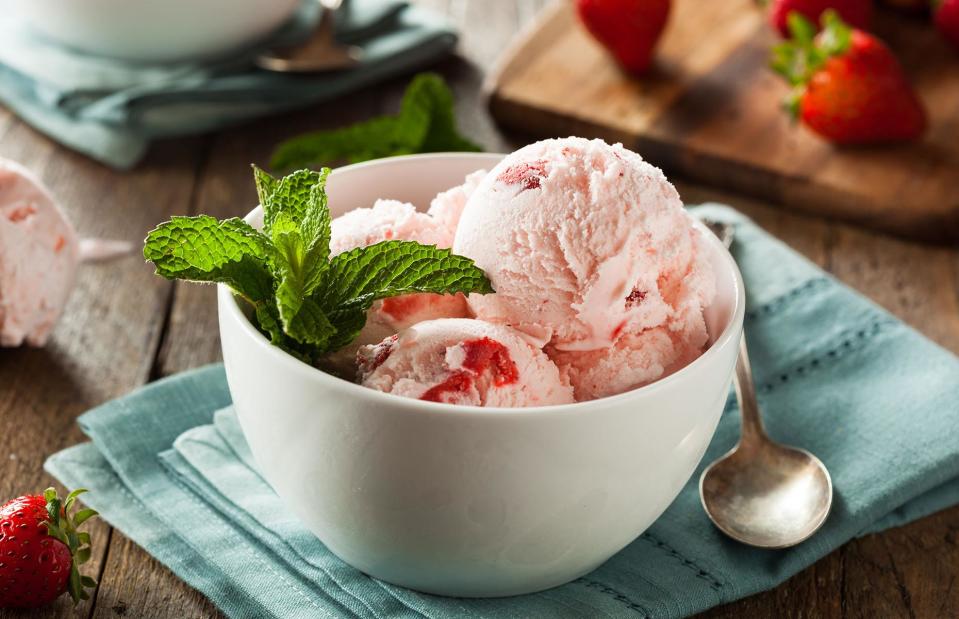
Brent Hofacker/Shutterstock
When you've had a bad day, it can be tempting to raid the freezer for some ice cream, drown your sorrows in chocolate, or veg out with a few too many savoury snacks. But as much as this coping strategy can provide a temporary feeling of comfort, it's not great for your diet. Instead, try to find a new stress-busting activity, like walking or hitting the gym.
Seasoning with salt without tasting food first
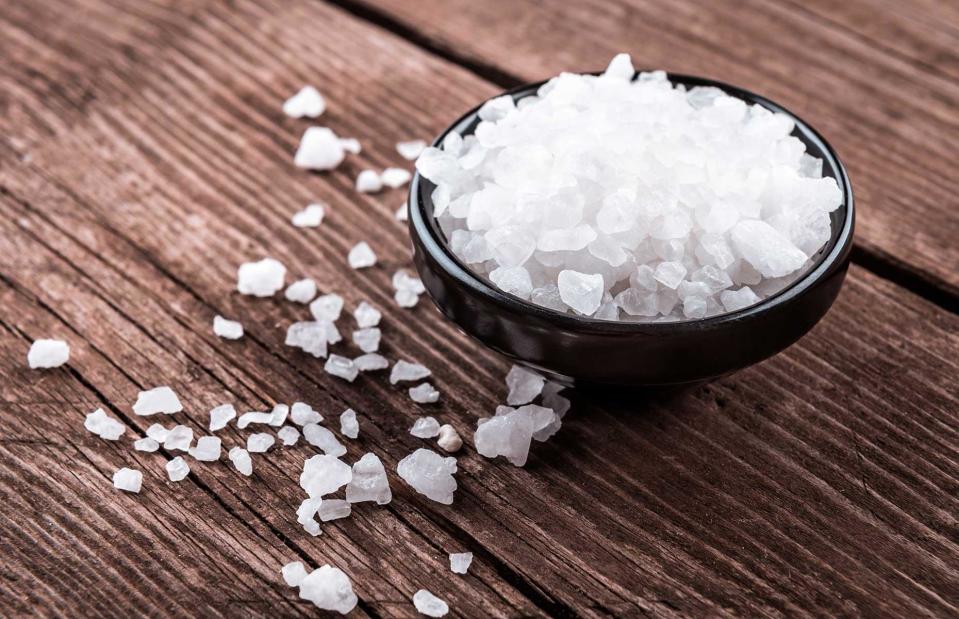
Catarina Belova/Shutterstock
It's often instinctive to reach for the pepper and salt before trying food first. While it's fine to add extra seasoning if you really need it, it makes sense to try before you apply. Most of us already eat too much salt; for example, Brits have an average intake of 0.3oz (around 8g) a day, compared with the recommended amount of 0.2oz (6g). Too much can lead to high blood pressure.
Going hotter than you can handle
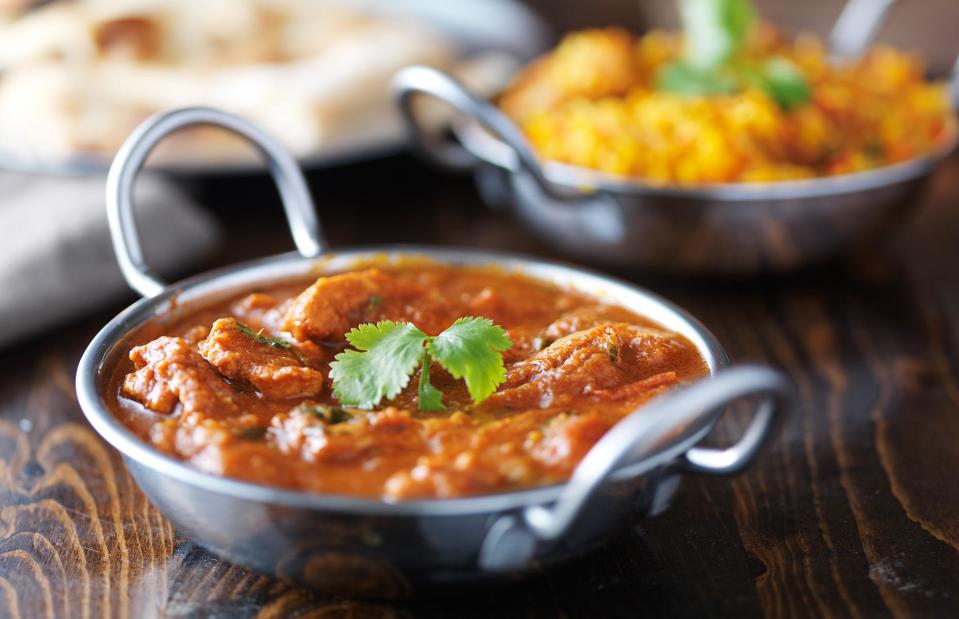
Joshua Resnick/Shutterstock
Opting for the spiciest curry on the menu could well ruin your enjoyment of the meal. Chilli tastes good in moderation, and the spice can rev up your metabolism temporarily – but too much of a good thing will blow your palate and cause discomfort. One study designed to discover why chilli is so satisfying found the reason was not that it affected hunger hormones, but that it caused symptoms such as bloating and nausea, putting people off eating entirely.
Cutting out entire food groups
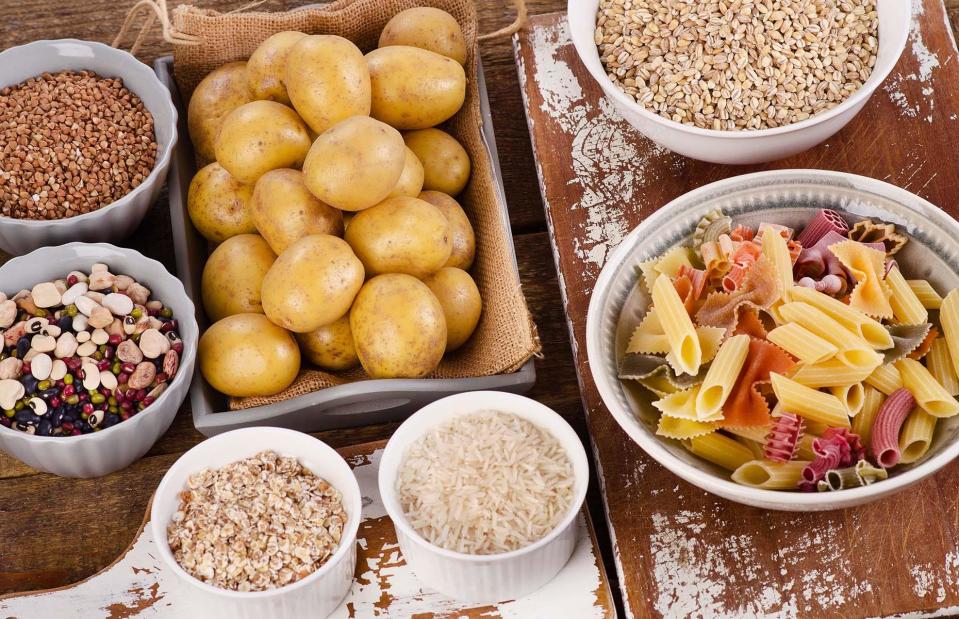
Tatjana Baibakova/Shutterstock
To maintain a healthy balance, avoid diets that advise cutting out entire food groups; a nutrient-rich, varied diet is important. If you follow one of these restrictive regimes, you run the risk of developing nutritional deficiencies, which could potentially be dangerous. You're also highly likely to get bored – leading you to overcompensate by seeking out 'forbidden' food later on.
Filling up on bread before the main meal
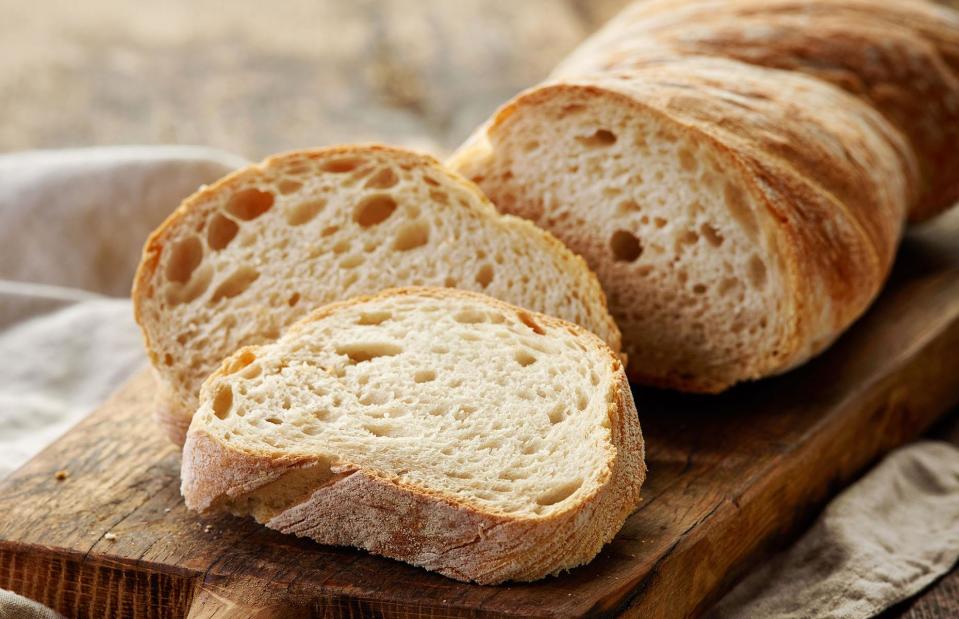
MaraZe/Shutterstock
If you're trying to eat healthier, an overflowing breadbasket can be one temptation too far. A good idea is to go for either bread on the side, or bread as a starter – but not both. In fact, it might be easier to just ask for bread not to be brought to the table at all while you're perusing the menu, suggests dietitian Helen Bond.
Eating out too often
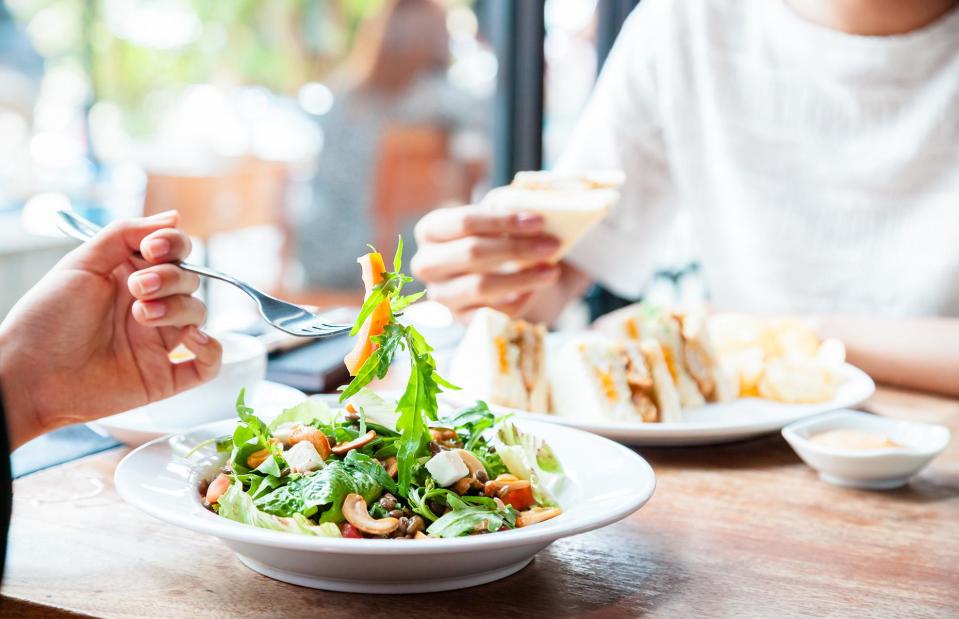
EM Karuna/Shutterstock
Here's an easy way to do your body and your wallet a favour: stop eating out so often. As delicious as the dishes at your favourite restaurants may be, they're often loaded with calories – and full of salt, which can cause bloating, thirst and a temporary rise in blood pressure. Instead, try to make time to cook your own takes on your go-to restaurant meals from scratch.
Having cheese before dessert
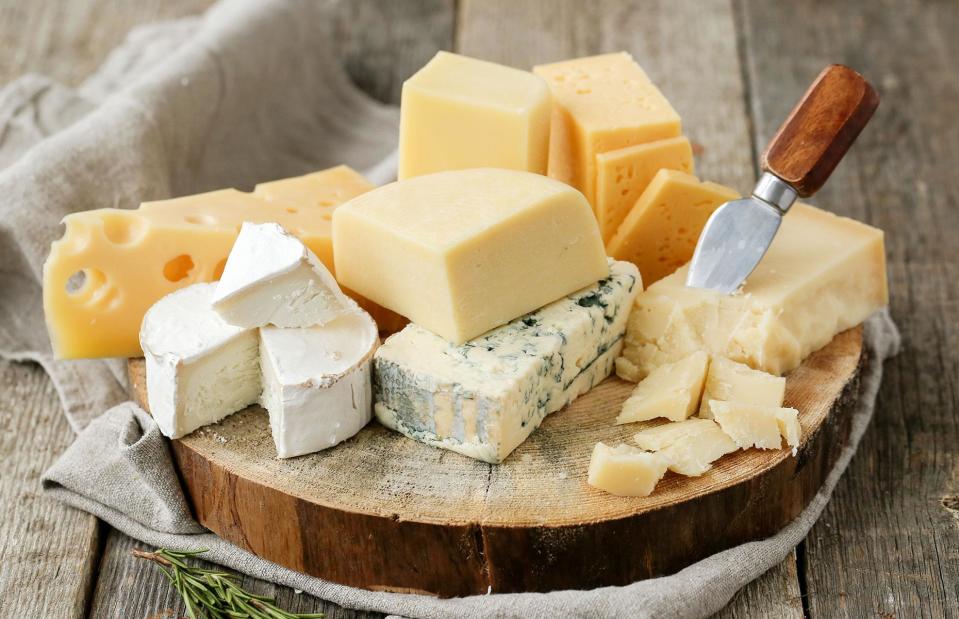
Y Photo Studio/Shutterstock
It's brave to have a culinary argument with the French, but it's better for you to leave cheese until last, rather than sandwich it between your main course and dessert (as French people often do). A 2013 trial showed that chewing cheese reduces acidity in the mouth (which can be high after a sugary dessert) – in turn, reducing your chances of tooth decay.
Serving yourself from the table
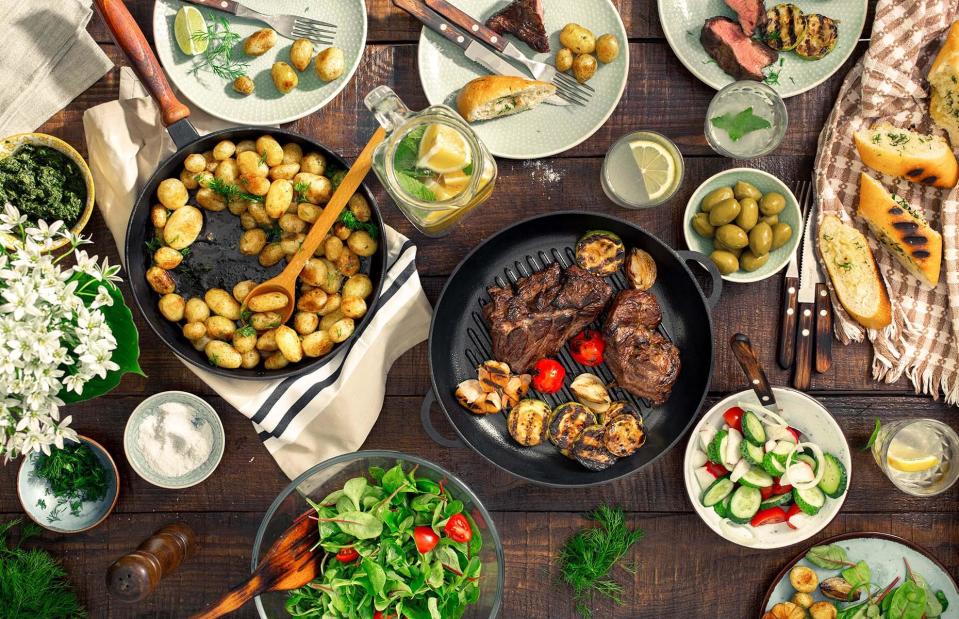
KucherAV/Shutterstock
As convivial as family-style meals may be, serving foods in this way might not be so good for your health. When you set out foods on the table for everyone to dig into, people tend to eat more, as everything is so accessible. On the other hand, if you and your dinner guests need to leave the table to get seconds, you're less likely to give in to temptation.
Consuming too much processed meat
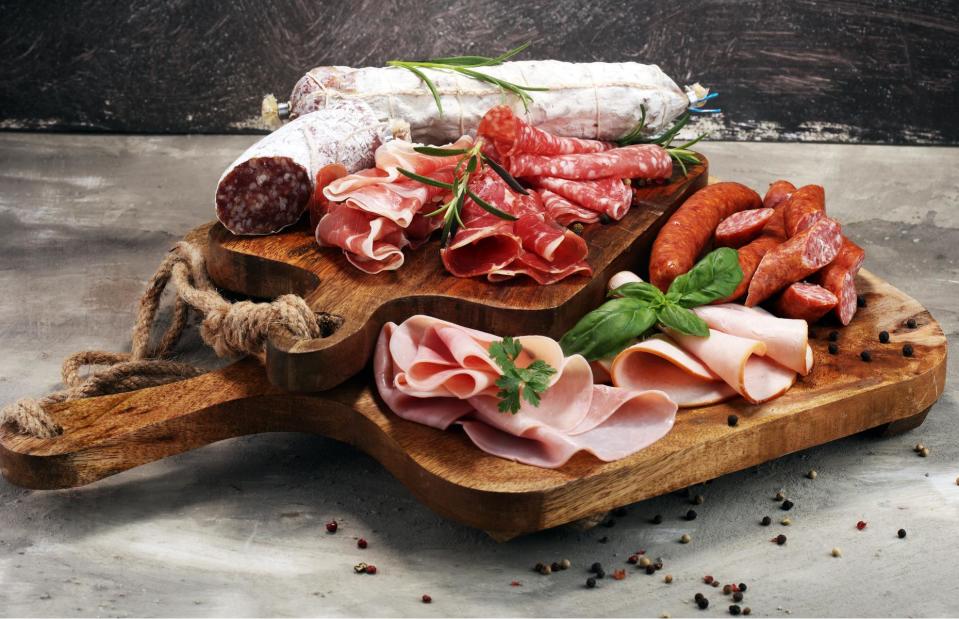
beats1/Shutterstock
The World Health Organization (WHO) categorises processed meat as a carcinogen, and says that 34,000 cancer deaths are attributable to diets high in the foodstuff every year. Processed meats include ham, hot dogs and salami – indeed, any meat that is salted, smoked, cured or otherwise preserved. A top tip is to accompany processed meat with fruit and vegetables that are rich in vitamin C and polyphenols, such as spinach and black grapes. These inhibit nitrites found in cured meats from changing into cancer-causing nitrosamines.
Eating when you're not hungry

Pheelings media/Shutterstock
When a work colleague brings in doughnuts or you get offered a free snack with your drink at a bar, do you ever throw caution to the wind and indulge – even though you're not particularly hungry? Just because it looks tasty, it doesn't mean you should tuck in. Before you eat, have a glass of water and wait a few minutes. If you find that your cravings subside completely, you may have been mistaking thirst for hunger.
Eating too late at night
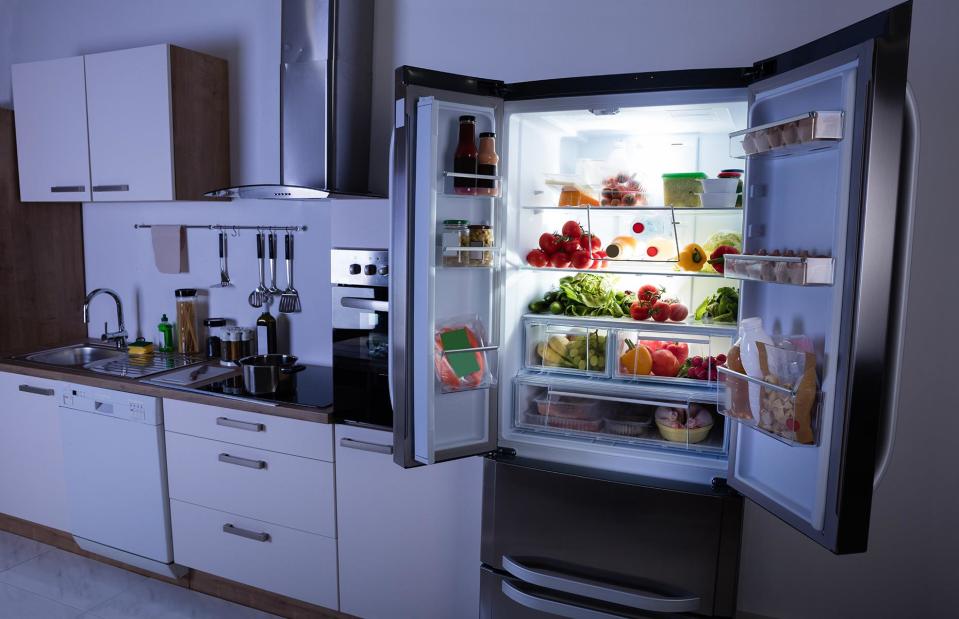
Andrey_Popov/Shutterstock
The evidence is by no means clear cut, but some studies suggest that people who eat later tend to be unhealthier. It certainly seems to make sense to eat more of your calories earlier in the day when you have a chance to be active – and eating earlier will also help prevent indigestion during the night. According to the Cleveland Clinic, to avoid heartburn you should wait at least three hours after eating to go to bed. Your evening meal should also ideally contain no more than 500 calories and 0.7oz (20g) of fat.
Not drinking enough water

Alter-ego/Shutterstock
Our bodies are 60% water, so it makes sense that staying hydrated is essential for our health. Drinking around eight glasses of water per day will help to stabilise your mood, keep you focused, boost your memory and flush toxins out of your system. But the benefits aren't only internal; getting your recommended daily dose of H2O will help to combat skin dryness and wrinkles, so it'll keep you looking your best, too.
Grazing all day long
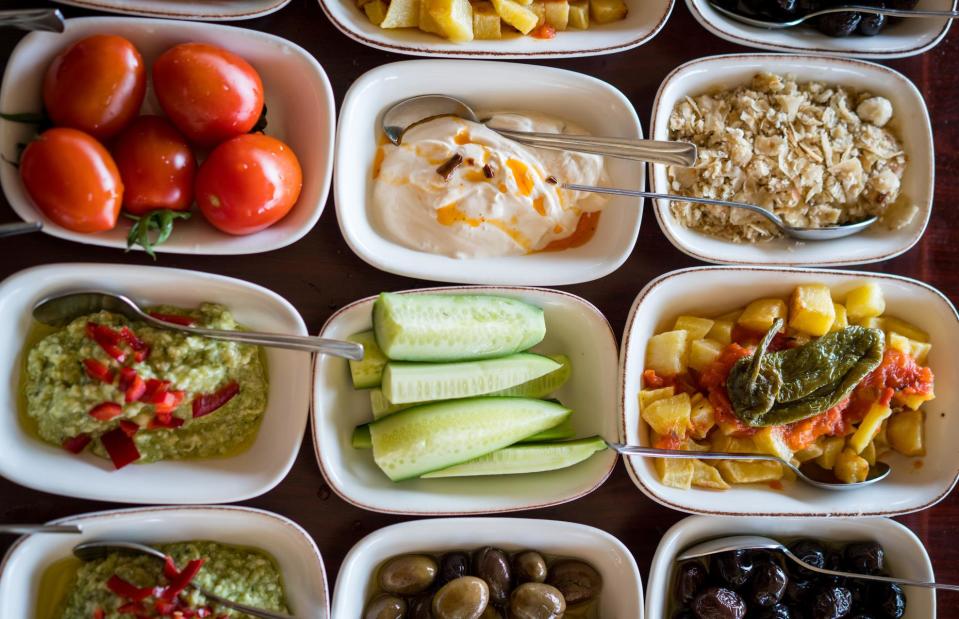
Zurijeta/Shutterstock
It was once thought that eating little and often was better for controlling hunger – but a recent study in obese men with prediabetes found that only eating within an eight-hour period each day significantly lowered insulin levels and insulin sensitivity, as well as improving blood pressure, compared with spreading out eating over 12 hours. "At the very least, not snacking between meals allows the body to go into the fasted state, which we now know to be healthier," says dietitian Dr Schenker.
Using serving bowls that are too big
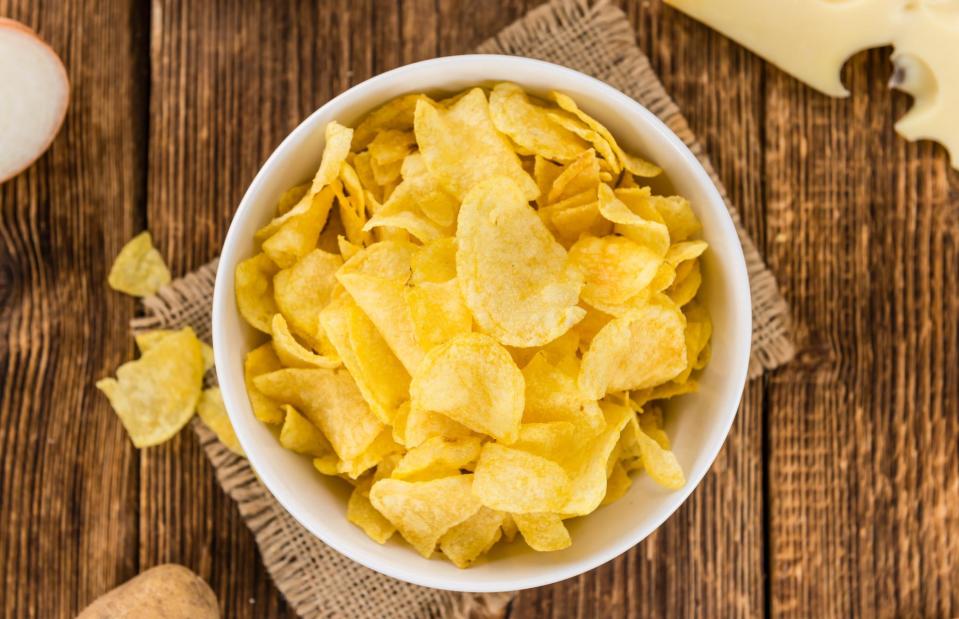
Handmade Pictures/Shutterstock
Regardless of how filled up with food it is, you'll eat more of foods like sweets and snacks from a big bowl than a smaller one, researchers have found. Ditto if you’re dipping into a family pack of crisps or snacks – to save your waistline, portion out a serving into a small container.
Not filtering your coffee

Claire Plumridge/Shutterstock
If you’re worried about heart health, you’re not doing yourself any favours if you drink cafetière (French press), Turkish or Scandinavian boiled coffee. These types of coffee, and espresso to a lesser extent, all contain measurable levels of coffee oils known as cafestol and kahweol, which, studies have shown, raise cholesterol. Instant coffee and coffee that’s filtered through paper do not contain these cholesterol-raising compounds.
Eating too fast
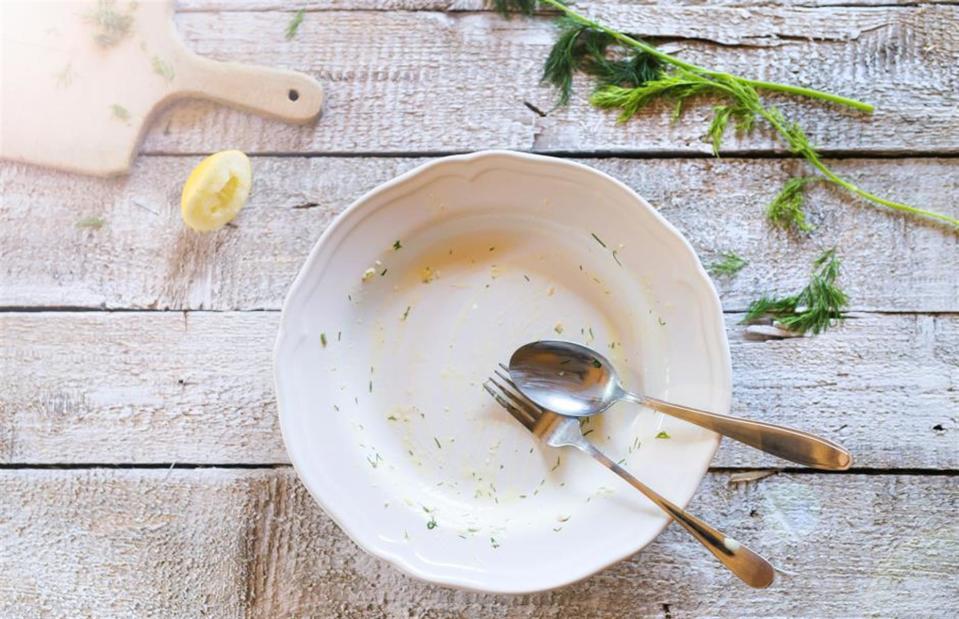
Halfpoint/Shutterstock
The problem with bolting your food down is that you'll often consume a lot more calories than you need to before your body has any chance to recognise that it's full. "It takes around 20 minutes for 'I'm full' messages to pass from the digestive system to the brain, so taking your time and remembering to gauge how full you are between mouthfuls is important," says dietitian Helen Bond. She adds that you're less likely to experience indigestion this way, too.
Not remembering to chew, chew, chew
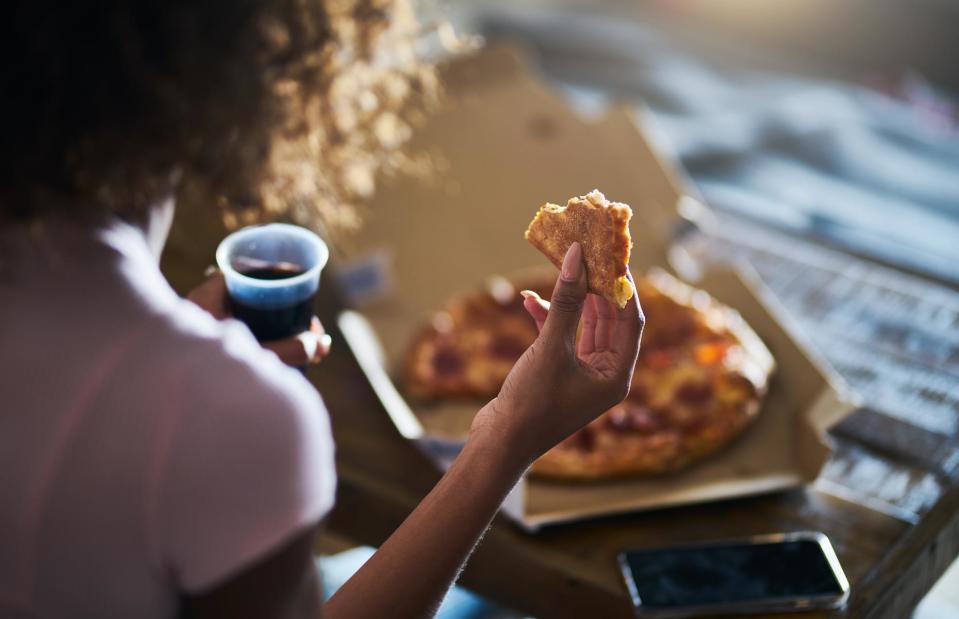
Joshua Resnick/Shutterstock
Chewing well can mean you eat less, helping to keep your health in check. Researchers found that people ate about 10% fewer pizza rolls, corresponding to 70 fewer calories, when they increased their number of bites by half. When they doubled their chewing, they ate 15% less food and 112 fewer calories.
Dining at your desk
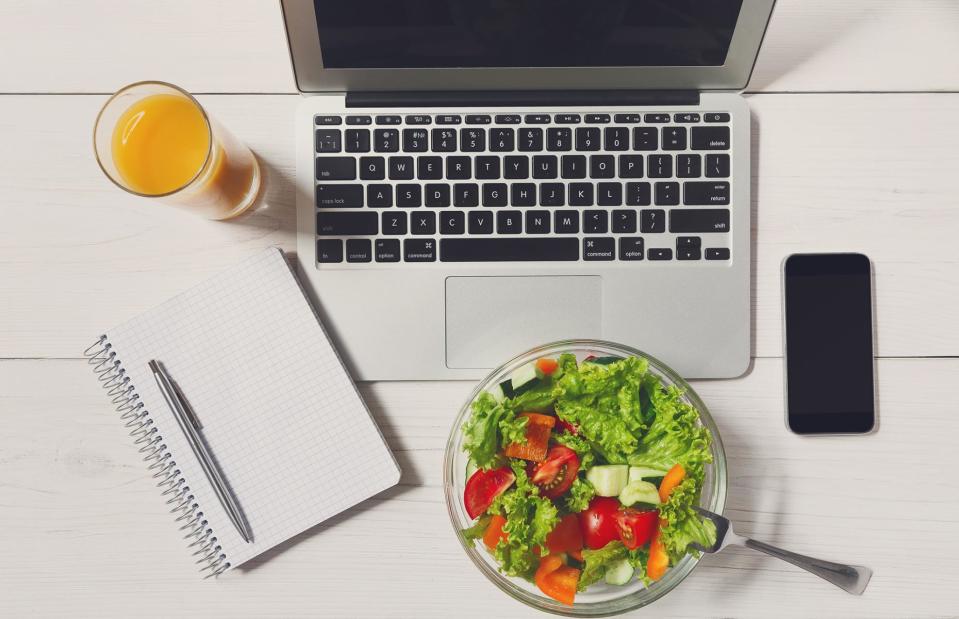
Prostock-studio/Shutterstock
A working lunch might seem like a good idea when you're snowed under, but research has shown that crumbs and other food bits that fall onto your keyboard create a breeding ground for antibiotic-resistant bacteria like Staphylococcus aureus and E. coli. Not to mention that your computer will likely be completely ruined if you drop a drink on it. Take food outside, or to a communal space – not least to get some air and take a break.


